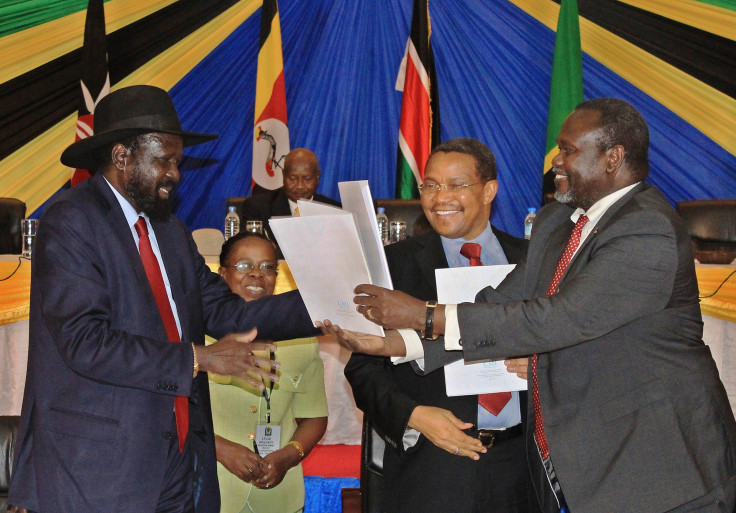South Sudan Peace Deal: Parliament Unanimously Approves Agreement But Doubts Remain

South Sudan’s parliament unanimously approved a peace deal Thursday aimed at ending a 20-month violent conflict between government forces and armed rebel groups, Parliament Speaker Manasse Magok Rundial told News24 in the capital, Juba. However, doubts lingered as to if the agreement will be implemented and respected by the warring factions.
The deal was brokered by the Intergovernmental Authority on Development, an East African bloc that is mediating peace talks. Both sides expressed discontent with the agreement, which calls for a transitional power-sharing and security arrangement. Rebel leader Rieck Machar signed the deal on Aug. 18 and his rival, South Sudanese President Salva Kiir, signed it on Aug. 28 under external pressure from the United States. Kiir’s government said it still has “serious reservations” about the agreement and warned it may not last, South Africa’s News 24 reported.
"That should tell you how difficult it's going to be for both sides to adhere to the peace agreement," said John Mbaku, a nonresident senior fellow with the Africa Growth Initiative at Brookings Institution in Washington, D.C., during an interview Thursday. "I don't see much hope for peace in the country."
South Sudan, which became independent in 2011, slid into civil war after Kiir sacked his then-deputy Machar and accused him of plotting to overthrow the government. Fighting erupted in December 2013 between forces loyal to the president and rebels allied with Machar. The conflict has claimed more than 10,000 lives and displaced 1.5 million people, with hundreds of thousands of South Sudanese seeking refuge in neighboring countries. It has also reopened old wounds between two of the nation’s largest ethnic groups – Kiir’s Dinka people and Machar’s Nuer.

Previous pacts between Kiir and Machar to end their civil war have fallen through. And even if the latest peace deal is implemented and the warring sides lay down their arms and split power, it is only a short-term solution. A ceasefire and transitional government will not solve South Sudan’s lack of institutions that could prevent corruption or another power struggle from emerging. At the same time, the Intergovernmental Authority on Development has failed to include other ethnic groups in the negotiations, which are largely centered on control over South Sudan's rich oilfields, experts said.
“They frame the conflict as solely between the two belligerents, ignoring the fact that any deal that rewards and privileges the two will set in motion additional conflicts,” Alex de Waal, executive director of the World Peace Foundation at Tufts University in Massachusetts and an expert on South Sudan, told International Business Times in August. “The exclusion of other political actors from the peace process makes it likely that any deal between today's protagonists will generate exclusion and grievance that lead to new conflict.”
© Copyright IBTimes 2025. All rights reserved.





















